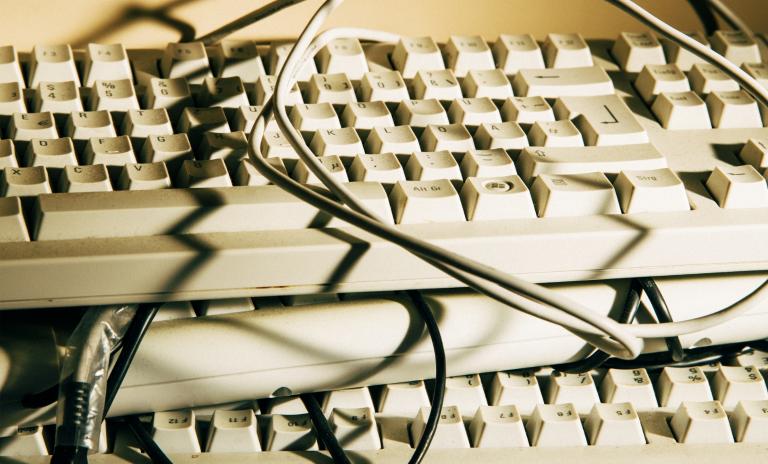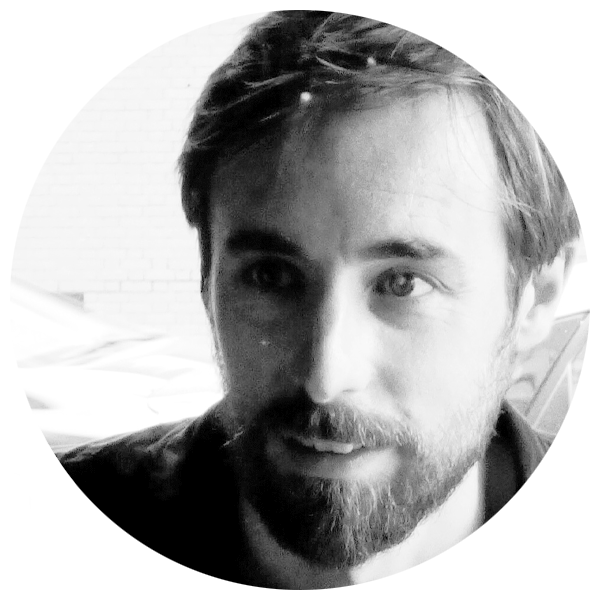Pace for impact
![{[downloads[language].preview]}](https://www.rolandberger.com/publications/publication_image/ta43_en_cover_j_download_preview.jpg)
In the new edition of Think:Act Magazine we explore the benefits of a calmer pace of life and business, and learn from the success of slow companies.


by Geoff Poulton
Photos by Julia Sellmann
In a world seemingly stuck in roadrunner mode and addicted to measuring accomplishments in ever-smaller increments, a growing chorus of academics and business leaders have come to appreciate the counterpoint. A life well lived – and a more sustainable organization – calls for altering our pace, slowing down at times in order to evaluate and appreciate, recharge and regroup.

For Carl Honoré, the realization came in Rome's Fiumicino airport. He was flicking through a newspaper when the words "one-minute bedtime story" leapt out at him. "Could this be the answer?" he wondered. His then two-year-old son liked slow, meandering tales to fall asleep to, yet the writer frequently found himself rushing through the ritual, eager to move on through his never-ending to-do list. But then he checked himself: "Have I gone completely insane?" On the flight home, Honoré realized that almost everyone he knew was obsessed with packing as much as possible into every day, rushing from one thing to the next, stretching themselves to the breaking point.
He vowed to see if there might be any benefits to resisting this "cult of speed" and the resulting book, 2004's In Praise of Slow, details his discoveries. Two more books and a TED talk followed, but Honoré says he frequently felt like a lone voice in the crowd. Now, 20 years after In Praise of Slow was first published, things have changed – for better and worse. Technology has given us more "weapons of mass distraction," and the pace of life has increased further still; on the flip side, the "slow revolution" as he calls it, is spreading, prompting more and more individuals and entire organizations to pay more attention to how we pace ourselves.
In recent years, Honoré has been joined by a growing number of renowned authors and thinkers highlighting the benefits to slowing down and varying the pace. The presence of books like Jenny Odell's How to Do Nothing, Oliver Burkeman's Four Thousand Weeks and Cal Newport's Slow Productivity on international bestseller charts suggests a message that's striking a chord. Which isn't to say we should all pull a dramatic 180 and live life at a snail's pace. There are plenty of benefits to speed. Pushing the envelope beyond previously imagined temporal boundaries has led to world-changing, life-saving creations and discoveries, from space exploration to vaccinations. On an individual level, a fast-paced, busy life can be invigorating, giving us feelings of status, value and purpose.
But as Oliver Burkeman reminds us, the thing about modern life is that there will always be more to do: "Constantly looking to increase your personal capacity and ability to get through more things seems to miss the point of a fulfilling and productive life," he says in an interview. At the heart of this matter is our relationship to time and how we spend it – something that has changed significantly over the centuries.

We are obsessed with time. It's a subject that Burkeman explores in Four Thousand Weeks, a reference to the approximate amount of time we spend on Earth if we live to 80 years old – the idea being that 4,000 weeks sounds like a worryingly small period of time. "Arguably, time management is all life is," he writes. Yet, time management often focuses on how to get through as many tasks as possible. "The world is bursting with wonder," and yet most productivity gurus seem to have missed the idea that "the ultimate point of all our frenetic doing might be to experience more of that wonder."
It wasn't always this way. A few hundred years ago, daily schedules were largely dictated by natural phenomena like tides, daylight and weather. Then came the Industrial Revolution, and in the second half of the 18th century our relationship to time began to change. Factory owners needed a synchronized workforce and working hours became a commodity. Suddenly, time was turned into a currency to be spent – and with this shift came a growing link between speed and progress.
And so it continued into the 20th century, with landmark breakthroughs like Ford's assembly line, which cut the time it took to make a car to just 90 minutes. It's around this time that our fixation on efficiency seems to start bleeding from work into general life, writes Jenny Odell in Saving Time: Discovering a Life Beyond the Clock, her follow-up to How to Do Nothing. She references a 1925 book by social psychologist Donald Laird called Increasing Personal Efficiency, which is "shot through with the cultural moment's fixation on speed, mastery and a single-minded mission to cut out the useless." Suddenly, the language used by factory managers was showing up in the context of personal development.
Over recent decades, digital innovation has upped the ante even further. In business, it's no longer hours and minutes that count, but seconds or less. Amazon established that every 100 milliseconds of latency on its website cost the firm 1% in sales. In 2006, Google found an extra half-second in generation time on its search page decreased traffic by 20%. Being slow costs money.
You probably don't need any reminding that one century after Donald Laird published Increasing Personal Efficiency our obsession with speed and accomplishment is now firmly entrenched in both our work and our private lives. Indeed, research shows that "productivity orientation" now has a firm hold on how we spend our leisure time.
In 2006, Google found an extra half-second in generation time on its search page decreased traffic by 20%. Being slow costs money.
Tech may even be making us think that time is passing more quickly. Research conducted at Australia's James Cook University suggests that constant use of smartphones and computers makes us more efficient at processing information, tricking our brain into thinking that time is passing faster than it really is. While it might help us to work more swiftly, it also makes us feel more pressured.
It wasn't meant to be this way. Some eminent thinkers believed the quantum leaps in technological innovation shown in the 20th century would soon usher in a more leisurely pace of life. In 1930, John Maynard Keynes predicted that within 100 years, most people would work just 15 hours a week, leaving plenty of time to explore other interests. In reality, however, average working hours have changed little since the 1970s.
So instead of living the life of leisure Keynes forecasted, we currently find ourselves in a technological paradox – the geographic and (apparent) temporal freedom granted by mobile internet, smartphones, laptops, Zoom and Slack sits uncomfortably alongside the stress, distraction, overwhelm and burnout caused by constant connectivity and a flawed notion of productivity.
Burkeman, who is a self-proclaimed "reformed productivity geek," refers to the "delicious irony" of how technology offers the potential of help but actually ends up making things worse. "Technology offers many ways for getting on top of all the 'stuff' there is to do in modern life," he says (appropriately via Zoom). "So, I think there's an extra level of disillusionment that occurs when people integrate these apps and devices into their lives and then still feel overwhelmed and burned out."

Nowhere is this more apparent than at work, and particularly with office-based "knowledge" jobs. Cal Newport, a computer scientist at Georgetown University, believes this is largely due to an outdated approach to productivity. In his latest book, Slow Productivity, Newport explores "the lost art of accomplishment without burnout." Our current definition of productivity is broken, he argues, leaving a growing number of workers trapped with just two apparent choices: join the hustle culture or sacrifice ambition altogether.
Which poses a pertinent question: How the hell did we get here? Until the mid-20th century, productivity was a simple heuristic – grow or make a product more efficiently and increase the margins to maximize profits. But then more and more people began working in offices, performing cognitive tasks and the traditional approach to productivity no longer applied. To solve the issue, companies used visible activity as a proxy for actual productivity. This "pseudo-productivity," as Newport calls it, is largely why knowledge workers gather in offices and adhere to the same 40-hour work week originally designed to manage the physical exertions of factory labor. It's also why we experience internalized pressure to volunteer or "perform busyness" when the boss is nearby, he writes.
This has even led to busyness becoming something of a status symbol – yet another contributing factor in our apparent inability to slow down. Research by the same team behind the work on productivity orientation found that we perceive busy people (whether they actually are or merely appear so) as important and impressive. Adam Waytz, a psychologist and professor of management at Northwestern University's Kellogg School of Management, also cites recent research that suggests people consider those who exert high effort to be "morally admirable," regardless of their output. "The systems most people work in demand productivity, growth and profit. And these systems fundamentally demand that people stay – or at least appear – busy," says Waytz.
The thing is, all this busyness and a relentless focus on productivity isn't just bad for our mental and physical well-being – it's also not conducive to good work. A common symptom of our growing obsession with speed and efficiency is the tendency to multitask. But multitasking can reduce productivity by as much as 40%. Constantly checking emails, Slack or WhatsApp takes our brains away from what we were previously focusing on and it takes an average of 15 minutes to reorient to a primary task after a distraction. Multitasking can also create a "bottleneck" effect, preventing information from flowing from one part of the brain to another.
"The systems people work in demand productivity. And these fundamentally demand that people stay – or at least appear – busy."
The combination of distraction and a lack of appropriate measures of productivity and effectiveness makes it harder to accomplish what Newport calls "deep work." Instead, we're more likely to tick off shallow, more concrete tasks. "It's safer to chime in on email threads and 'jump on' calls than to put your head down and create a bold new strategy," he writes in Slow Productivity.
But large workloads and a relentless, unvarying schedule are bad for our brain – the key tool in most knowledge sector jobs. The human brain has two fundamental operating programs: The executive control network directs it to complete specific tasks; the default mode network is our brain at rest. We need the latter to daydream, imagine, think about the past and future – and be creative. The two should work in harmony, but too much stimulation can lead to the default mode network taking a back seat as the executive function jumps from task to task.
Breaking out of this cycle and carving out time for quieter periods isn't easy. That's partly because we've become habituated to this way of living and working. When we repeatedly do and see others doing the same thing in the same way, our brains stop registering it or questioning these actions, says Tali Sharot, a neuroscientist at University College London and MIT. "Something might be causing stress, but you don't really know what it is. Habituation means the stress can decrease over time but still be present. It's only when you remove this thing from your life that you suddenly realize what an effect it was having," she explains.
Sometimes, dramatic or fundamental changes may be the only way to achieve this – a pandemic, for instance, or a generational shift. Devon Price is a social psychologist at Loyola University and the author of Laziness Does Not Exist, which looks at why, despite doing far more work than nearly any other humans in history, most of us often feel it's not enough. Now, things may finally be changing, he says. Those who have come of age since the 2008 recession "don't trust in the myths that many of us who are older were conditioned to believe in, about the value of hard work and the professional world supposedly being a meritocracy." As such, they're not equating suffering at work with morality or value anymore. Or, as Carl Honoré puts it: "Younger people are looking at previous generations and asking, 'OK, but what did you get out of your 80-hour week? You got a bad back and three divorces, right? And probably a heart condition.'"

The solutions to these issues are many and varied. On an organizational level, it's important to identify the moments when it's OK to slow things down. In their new book, The Friction Project, Stanford University's Bob Sutton and Huggy Rao point out that "strategic slowness" can enable improved decision-making and better work as well as leaving employees happier and more fulfilled. They identify numerous occasions when smart managers should urge employees to hit the brakes. These include the time before making irreversible decisions, when solving complicated problems and to accomplish creative work. Slowing down can also lead to more ethical choices and can even help mitigate biases and stereotypes.
At a personal level, slowing down in the workplace could include anything from taking regular "micro-breaks" to organizing designated focus blocks, having meeting-free Fridays, four-day workweeks, vacations or even sabbaticals. Of course different things will work better for different individuals, teams, departments and companies. There's only one nonnegotiable, and that is constantly working flat-out is no longer the answer.
Austrian designer and artist Stefan Sagmeister prefers a more extreme approach – but the principle is the same. Every seven years, the 62-year-old leaves his New York studio, where he has worked on projects with the likes of the Rolling Stones, HBO and the Guggenheim Museum, and takes a one-year sabbatical. During his time off, Sagmeister pursues other creative interests, from furniture building to filmmaking, as well as dreaming up new approaches for his commercial work.
"Without exception, every single one of them has said [a sabbatical] was one of the best things they'd ever done with their lives."
For most business owners and managers, the prospect of stepping away from work and picking up the reins again a year later is a challenging one. Sagmeister was no exception. "I was very anxious," he recalls. "It was 1999, our studio was seven years old, the first internet boom in full swing and everyone was in the business of making lots of money. It seemed unprofessional to close for a year to try things out." He worried the studio would lose all its clients. "But none of these fears materialized."
Later this year, Sagmeister will embark on his fourth 12-month sabbatical. Each time, he has returned with new skills, ideas and, crucially, a renewed sense that his job is a calling, "rather than just work." Sagmeister believes the time frame is less important than the commitment to doing what you are truly interested in and giving yourself space to try things out. "I've now talked to dozens and dozens of people who have taken a sabbatical. Without exception, every single one of them has said it was one of the best things they'd ever done with their lives."
A recent study by researchers from Harvard, Notre Dame and the University of Washington corroborates Sagmeister's experience, finding sabbatical-takers experienced significant, positive changes in their work and life. It's no surprise, then, that the number of employers offering sabbaticals is now on the rise, with researchers giving companies straightforward advice: "If you facilitate sabbaticals before employees are pushed to the brink, most will return with renewed energy and greater clarity about how they want to contribute."
Of course, happier, healthier staff and a more considered approach to work sounds all very well and good. But what impact does this have on the two metrics, which, for better or worse, remain top of mind for most businesses: productivity and the bottom line?
Clear and independent links between employee well-being and company performance remain thin on the ground, but there are numbers out there that support this approach. In 2019, Oxford University conducted a six-month research program with British telecoms firm BT. It found that workers are 13% more productive when happy. A further meta-analysis by some of the same researchers also found that employee satisfaction has a substantial positive correlation with productivity and a moderate one with profitability.
There's even evidence to suggest that specifically going slow can pay off. Back in 2010, a joint study by Harvard and The Economist found that companies which "moved fast all the time and focused on maximizing efficiency" recorded lower sales and operating profits than firms that embraced strategic slowness.
"We've known since the 1980s, at least, that shorter workdays, shorter workweeks and more flexible scheduling options lead to happier workers."
One increasingly popular method of adjusting the pace and rhythm of work is the four-day week. Businesses across the globe are experimenting with shorter weeks, with Germany the latest country to kick off an official six-month trial for select companies, joining the likes of Iceland, Spain, Belgium, the UK and South Africa. Major firms like Microsoft and Unilever have also trialed the concept in select markets. While the precise approach varies, the most common one is the 100-80-100 model, which refers to 100% pay for 80% of hours worked while maintaining 100% productivity. Less focus on hours worked and more focus on actual outcomes, according to this framework, boosts productivity.
The four-day workweek may not be applicable to all industries, but the evidence gathered so far is promising. In 2022, 61 UK-based organizations took part in the world's biggest trial to date. It documented how the companies reduced working hours without compromising on targets by introducing interruption-free "focus periods," reforming email etiquette and ensuring shorter, clearer meetings. Many office workers know the feeling of spending more time talking about work than actually doing it – anxiously staring at an ever-growing task list as they hop from one call to the next.
Of course, in the grand scheme of things, trials on this scale don't amount to much. But after over a century of trying to achieve as much as possible as quickly and efficiently as possible, could the tide be starting to turn? Devon Price is skeptical. "I think the business world is going to keep fighting the inevitable tooth and nail until they are absolutely forced by circumstances to abandon hustle culture. We've known since the 1980s, at least, that shorter workdays, shorter workweeks and more flexible scheduling options lead to happier workers. And still, many companies resist the idea."
Whether you are an optimist, a pessimist or somewhere in between, it's hard to ignore the undoubted tension brewing in the workplace as employees – led by younger workers – begin to amp up the pushback against the status quo. Carl Honoré, who still speaks regularly around the world on the topic of slowing down, says he hears "all the time" from CEOs and HR managers about the issue working its way up the agenda. Reactions typically go one of two ways, he says: People are either "amazed" that it's finally happening or "despair" at the complete lack of work ethic among overly sensitive youngsters.

The funny thing is, we humans become more intentional with our time the older we get. "When we're young, we tend to view the future as being more expansive and full of possibility, whereas older folks realize that time is limited and therefore more precious," says UCLA professor Cassie Mogilner Holmes, whose book Happier Hour looks at the connections between time and happiness. She says the successive Covid-19 lockdowns forced everyone into an "older-person mindset," which helps explain why workers of all ages are now more protective of their time. "I think there's value for both employees and employers to identify and communicate the purpose of the work they're doing, to focus on things that are more worthwhile rather than just working hard because that's what you do."
Yet slowing down and finding a more natural rhythm for life can be a tough battle as we end up butting heads with the toughest obstacle of all – ourselves. Slowing down creates more time and space to grapple with fundamental questions around purpose, identity and whether we're living the right kind of life. This can be incredibly uncomfortable – and it's much easier to avoid deep levels of reflection when we're stuck in roadrunner mode and only sweating the small stuff. But slowing down isn't just beneficial. "It's the only way to design a life worthy of the name," says Honoré. "In recent decades, we've moved so far away from what it is to be human. It's time to slow down and reconnect with that."

![{[downloads[language].preview]}](https://www.rolandberger.com/publications/publication_image/ta43_en_cover_j_download_preview.jpg)
In the new edition of Think:Act Magazine we explore the benefits of a calmer pace of life and business, and learn from the success of slow companies.
